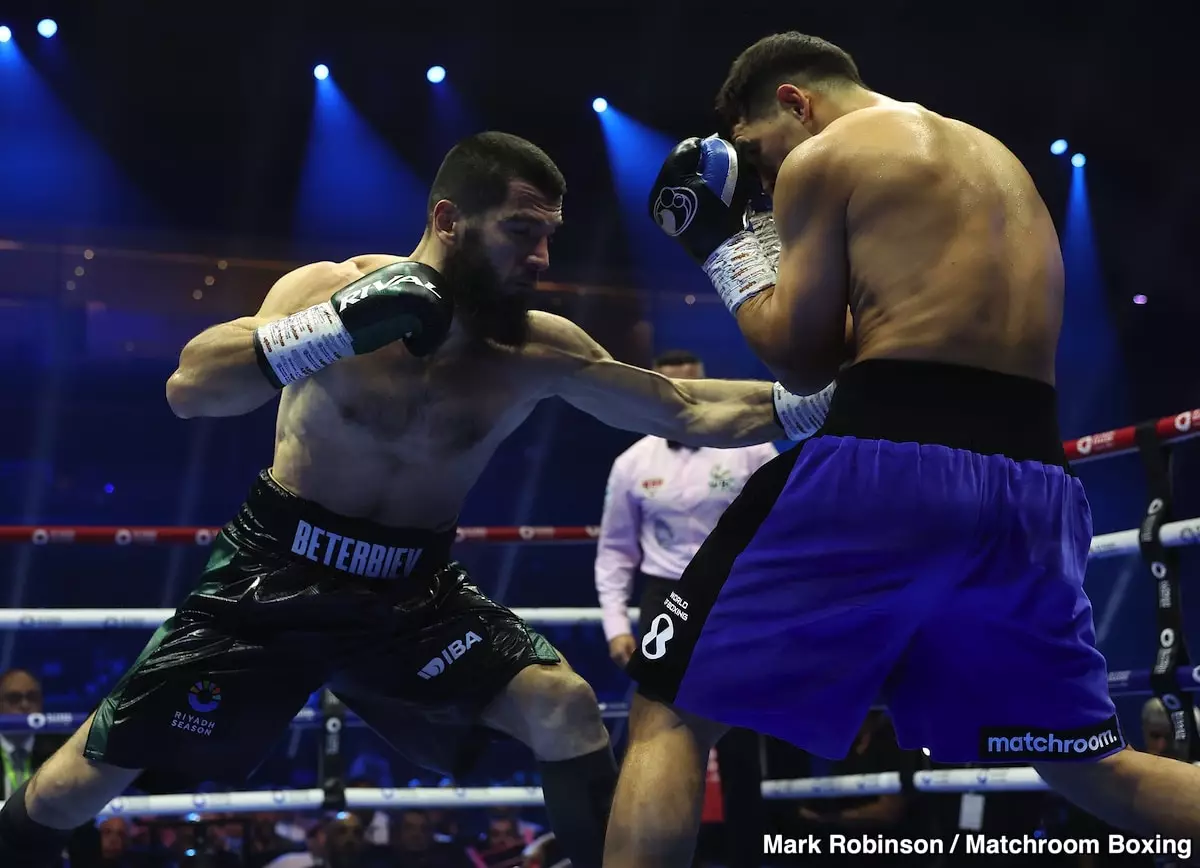The world of boxing often brings forth discussions that blend strategy with ethics, particularly when it comes to the idea of ‘aging out’ an opponent—a tactic that has been prevalent in the sport for decades. Recently, Sergio Mora drew attention to this concept in reference to David Benavidez and Artur Beterbiev, the undisputed light heavyweight champion. Mora’s remarks raise crucial questions about the implications of such a strategy, both from a competitive and a moral standpoint.
In the context of boxing, ‘aging out’ refers to a strategy where a younger fighter waits for an experienced champion to grow older, potentially leading to a decline in their physical abilities. This tactic becomes especially relevant in scenarios where a champion showcases an aggressive, high-risk fighting style. Mora’s comments about Benavidez aiming to wait three to four years before facing a 40-year-old Beterbiev highlight a calculated risk management approach that has supporters as well as detractors.
In a sport that regularly showcases the intersection of youth and experience, fighters must navigate the complex landscape of timing and opportunity. Professional boxing has a history of fighters facing opponents in their twilight years—securing victories that may not necessarily represent an even contest of skill and ability but rather a shrewd understanding of market dynamics, physical condition, and career trajectories.
Benavidez’s Path to the Title
David Benavidez, holding an impressive record of 29-0 with 24 KOs, has established himself as a formidable contender in the light heavyweight division. His upcoming fight against WBA ‘regular’ champion David Morrell is crucial for positioning himself for a bout against Beterbiev. While Mora’s assertion highlights Benavidez’s potential preference for an opportune moment to challenge an aging champion, it also underscores the inherent risk of waiting too long.
Mora’s strategy to age Beterbiev out might be seen as practical, especially considering Beterbiev’s history of physically punishing fight styles. However, this strategy raises ethical concerns about the integrity of competition. Is it morally acceptable for a fighter to intentionally delay a match against another champion who might not be at their best? Does this maneuver diminish the essence of sport, replacing competition with strategic exploitation?
Mora’s assertion adds another layer of complexity: the potential consequences of waiting. While it is common for fighters to aim for opportunities where their chances of winning increase, there is a delicate balance between strategic maneuvering and running the risk of missing one’s moment. In Benavidez’s case, if he opts to wait and Beterbiev happens to perform at a high level despite age, Benavidez might lose the chance altogether. Rather than seeking an opportunistic moment to strike, he could find himself overanalyzing the landscape, losing potential fights that could bolster his resume.
Moreover, Mora’s comments highlight the potential repercussions of aiming to ‘age out’ a champion. The practice could cultivate a culture of fighters reluctant to engage in high-stakes matches unless they perceive a clear advantage. The essence of boxing lies in its unpredictability—the sheer willpower required to step into the ring against anyone should not be undervalued or reconstructed into a strategic playbook.
Final Thoughts on Beterbiev and Benavidez
As the wait for the rematch between Beterbiev and Dmitry Bivol continues, boxing fans are left to ponder what this means for both fighters. Beterbiev’s lethal fighting prowess indicates that waiting for him to show signs of decline may not be a foolproof strategy. Mora’s remarks, particularly emphasizing Beterbiev’s capabilities and danger within the ring, remind us that no opponent should be viewed as an easy target simply due to age.
While waiting to face a champion past their prime may appear tactical from a career standpoint, the ramifications of such choices can have wider implications for the sport. The delicate interplay between opportunity and ethics remains central to the dialogue surrounding fighters like Benavidez and Beterbiev, with the need for balance in intention and action more crucial than ever in professional boxing.

